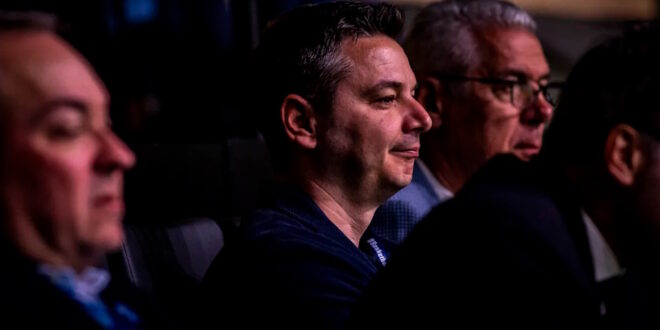George Avaizoglou, the managing director of NBA Europe and the Middle East, recently provided insights on the NBA’s collaboration with FIBA aimed at establishing a presence in Europe, a move being referred to as NBA Europe.
In an interview with The New York Times, the Greek executive discussed his expectations for the range of teams that could be involved, highlighting the interest from established basketball organizations, football clubs, and newly formed teams.
“Basketball organizations already present in Europe are eager to join this initiative, particularly as many are part of larger multi-sport entities,” he noted.
Examples of relevant clubs include Real Madrid and Galatasaray.
“This represents an excellent chance for these clubs to diversify their offerings and create a multi-sport strategy, which is quite prevalent in regions such as Spain, Greece, and Turkey, although not as common in places like the UK. Nonetheless, I believe there is a real interest for us in this area,” Avaizoglou stated.
“What’s particularly compelling is that these clubs carry centuries of rich history, having established robust brands that enjoy global recognition and have fans worldwide,” he elaborated. “On a practical level, they are managed by professionals who excel in filling arenas and assembling high-caliber teams. Combined with their existing fan bases, they present significant value to the league right from the outset.”
With a forthcoming European League set to debut in 2027 or 2028, as stated by NBA commissioner Adam Silver, Avaizoglou mentioned that teams from cities like Paris, London, Manchester, Berlin, and Rome could play a role.
“We might also witness the emergence of entirely new brands in certain cities as part of this league, although I anticipate that most will stem from existing Type-One or Type-Two programs,” he referred to earlier examples of established teams.
The new league could also integrate with domestic competitions, similar to the current football framework operated by UEFA.
“What exists in football is a straightforward, singular pyramid that’s easy to communicate to investors, media, potential partners, and players,” Aivazoglou indicated. “Success in the domestic league doesn’t necessarily guarantee a chance to compete at a high level across the continent. This is a significant oversight as it undercuts the value of local leagues and stifles the dreams of numerous teams within the system, preventing them from experiencing their own fairytale moments, much like Leicester City did when they won the Premier League a few years ago.”
Photo Credit: FIBA
Stay updated with the latest news.
 NBA News NBA News, Match Reports and Updates
NBA News NBA News, Match Reports and Updates



